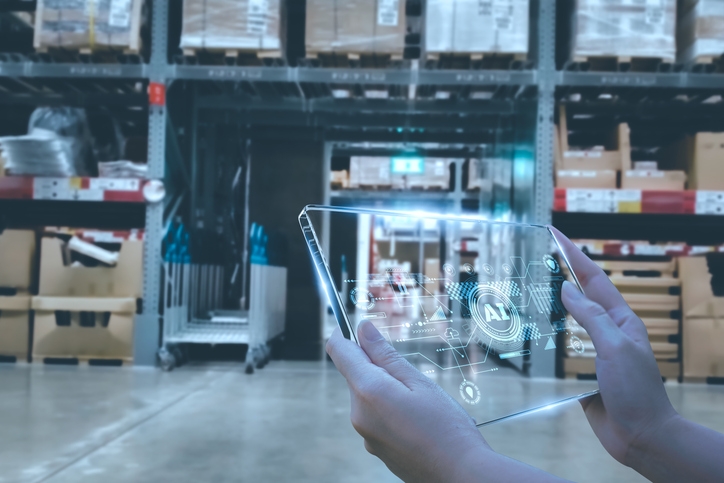Streamlining Your Event Logistics With AI and Saving Time for Planners
Discover how AI transforms event logistics by enhancing efficiency and streamlining processes. Learn practical insights for your next event. Read more!

Introduction: Why Event Planners Spend 60% of Their Time on Logistics (and How AI Fixes It)
The rise of AI in event logistics is transforming how planners handle vendor coordination, travel arrangements, and real-time attendee management. Behind every successful event lies an invisible web of logistics: vendors to manage, speaker schedules to align, staff rotations, travel coordination, venue setup, and technology integration. For event organizers and planners, this chaos consumes enormous time. In fact, planners spend up to 60% of their time just coordinating logistics, leaving little room for creativity, strategy, or attendee engagement.
This is where artificial intelligence (AI) is stepping in—quietly reshaping the event planning process. From automating repetitive tasks to providing real-time data and predictive analytics, AI is not just a trend in the event industry; it’s the future of seamless, data-driven event management.
The Hidden Struggles of Traditional Event Planning: Vendors, Scheduling, Travel, and Check-In Chaos
Event logistics has always been a balancing act of manual effort and tight deadlines. But traditional approaches create challenges:
- Vendor tracking & contracts: Endless spreadsheets, manual compliance checks, and the risk of human error; event planning challenges.
- Scheduling conflicts: Speaker schedules, staff shifts, and session overlaps often create last-minute chaos.
- Travel & accommodation bottlenecks: Coordinating hundreds of attendees for large-scale events or corporate conferences is resource-heavy.
- Repetitive tasks: Data entry, check-in processes, and attendee tracking drain valuable planner time.
The result? Higher costs, lost efficiency, and missed opportunities for event professionals to focus on strategy, creativity, and attendee experience.
Artificial Intelligence in Event Management: The Tools Making Logistics Invisible
AI-powered tools are no longer experimental—they’re quietly becoming the backbone of event execution. From venue sourcing to travel coordination, AI capabilities are helping organizers save time, cut costs, and reduce the chaos of managing hundreds of moving parts. Modern AI tools now replace outdated spreadsheets by offering predictive analytics, automated scheduling, and intelligent vendor matching. Let’s break down how the right tools are solving old problems and reshaping industry trends.
1. AI Venue Selection: Compare Spaces by Budget, Capacity, and Tech Readiness in Minutes
The Problem: Traditionally, planners spend weeks gathering relevant information about venues—capacity, pricing, past reviews, accessibility, and tech compatibility—before shortlisting options for their next event. For a comprehensive approach to virtual event planning checklist, see our recommended guide. This delays event registration launches and impacts overall tracking progress.
How AI Helps:
- Automated venue matching: AI scans large venue databases in real time.
- Smart recommendations: Uses event data (audience demographics, previous attendance trends, budget, goals) to suggest best-fit venues.
- Cost forecasting: Predicts hidden costs like catering markups or AV surcharges.
Tools to Explore:
- VenueIQ (AI-powered venue sourcing, pricing on request) → Known for quick sourcing and comparison.
- Cvent Venue Sourcing (subscription-based, starting around $3,500/year) → Integrates event data for faster decision-making.
- AI plug-ins within Tripleseat (restaurant/venue booking tool) → Automates availability checks.
Why Better:
- Cuts venue sourcing time from weeks to hours.
- Allows organizers to launch event registration sooner.
- Provides custom solutions aligned with budget + attendee expectations, and enables seamless onsite badge printing and check-in for a smooth attendee experience.
Reviews & Feedback: Planners note higher accuracy in matching venues to attendee size and event goals, reducing site visits by up to 40%.

2. AI Vendor & Contract Management: Spot Risks and Find Reliable Partners Without Spreadsheets
The Problem: Vendor management often relies on manual spreadsheets, emails, and memory. Last-minute vendor dropouts or compliance failures can derail the entire event execution.
How AI Helps:
- Performance analysis: Tracks vendor reliability using past event data.
- Compliance automation: AI scans contracts for risky clauses or missing details.
- Predictive vendor scoring: Identifies vendors most likely to deliver on time and within budget.
Tools to Explore:
- Precursive + Salesforce AI (pricing on request) → Tracks vendor progress, integrates with CRM.
- SirionLabs AI Contract Management (enterprise solution, $50–100K/year) → Automates contract compliance.
- Cvent Supplier Network AI Add-ons → Provides sentiment analysis from past reviews.
Why Better:
- The best AI solutions don’t replace your existing systems; they integrate seamlessly with CRMs, ticketing platforms, and event management software.
- Reduces last-minute cancellations.
- Protects planners legally and financially.
- Allows organizers to manage multiple vendors without drowning in emails.
Reviews & Feedback: According to G2 reviews, users save up to 25% of vendor management time and reduce legal risks significantly.
3. Automated Scheduling: Prevent Speaker Clashes and Keep Attendees on Track in Real Time
The Problem: Double-booked speakers, clashing breakout sessions, or overlapping staff shifts frustrate attendees and hurt credibility. Manual scheduling is error-prone and hard to adjust in real time.
How AI Helps:
- Conflict-free scheduling: Detects overlaps instantly.
- Dynamic rescheduling: Adjusts when speakers cancel or sessions run late.
- Facial recognition check-ins: Syncs attendance data with session schedules for accuracy.
Tools to Explore:
- Grip AI Scheduling (pricing on request) → Smart matchmaking + session scheduling.
- Sched AI (around $1–3 per attendee) → Automates schedules for conferences.
- Eventuall AI Scheduling Assistant → Focused on tracking progress and sending real-time notifications.
Why Better:
- Improves attendee satisfaction with seamless flow.
- Gives planners real-time visibility into session attendance.
- Supports custom solutions for hybrid events with both live and virtual schedules.
Reviews & Feedback: Event organizers say AI scheduling tools cut down rescheduling stress by 60% during live execution.
4. Smarter Travel & Accommodation: Optimize Group Bookings, Routes, and Real-Time Check-In
The Problem: Coordinating travel for hundreds of attendees and staff is a nightmare. Group bookings, route changes, and last-minute cancellations overwhelm human teams.
How AI Helps:
- Group booking optimization: Negotiates better deals by analyzing bulk rates.
- Smart itinerary management: Sends real-time updates on delays or reroutes.
- Facial recognition integration: Speeds up check-ins and hotel registrations.
Tools to Explore:
- Navan (formerly TripActions) (starts at $25/user/month) → AI-powered corporate travel management.
- Lola.com AI Travel (now Amex GBT) → Automates hotel + flight booking changes.
- CWT AI Travel Solutions (enterprise, custom pricing) → Focused on cost reduction and policy compliance.
Why Better:
- With seamless integration across platforms, AI eliminates the disconnect between travel, vendor, and attendee data.
- Handles last-minute flight changes automatically.
- Provides travelers with relevant information via chatbots.
- Allows organizers to track progress of arrivals/departures in real time.
Reviews & Feedback: Navan users highlight cost savings of up to 15% on group travel and improved traveler experience.

Ensuring Smooth Event Execution with AI
Once planning transitions into event execution, AI takes centre stage in ensuring everything runs like clockwork. From predicting bottlenecks to providing real-time insights, AI capabilities are helping planners move beyond reactive firefighting into proactive, data-driven decisions.
AI enables seamless coordination between multiple stakeholders—vendors, venues, and attendees—without endless email chains.
1. Predicting Bottlenecks: Use AI Analytics to Anticipate Crowd Flow, Delays, and Resource Shortages
AI-powered predictive analytics analyze live event data such as:
- Crowd flow & attendee behavior (where attendees gather most, which sessions are overcrowded).
- Staffing requirements (detecting under-resourced booths or slow check-in desks).
- Session popularity trends (flagging overbooked workshops before they start).
Why it matters:
- Prevents resource shortages.
- Enables real-time alerts to event teams.
- Ensures seamless coordination between event staff and tech.
Tools to explore:
- Zenus (AI video analytics): Tracks attendee flow & dwell time with facial recognition, helping organizers predict congestion.
- ExpoFP (from $99 per month): Provides live floorplan analytics for trade shows, helping select the right venue layout.
Industry trend: Organizers are increasingly allowing AI to forecast crowd management in trade shows, where delays can cost thousands in lost engagement.
2. AI-Driven Resource Management: Match Catering, Equipment, and Staffing to Real Attendee Behavior
Managing catering, equipment, and supplies is one of the most complex aspects of event execution. AI reduces waste and overspending by:
- Tracking inventory in real time.
- Using historical attendee behavior data to predict catering needs.
- Optimizing vendor reorders to prevent shortages.
Benefits:
- Saves business costs by eliminating overstocking.
- Matches supply with actual demand using real-time insights.
- Improves sustainability by reducing waste.
Tools to explore:
- Stova (formerly Aventri): Offers AI-driven resource tracking integrated with event registration data.
- Cvent Supplier Network: Not only helps find suitable venues but also tracks resource usage across multiple events.
Review highlight: Users report up to 20% cost savings when integrating AI into catering and supply planning.
3. AI Assistants and Chatbots: Automate Check-In, Answer FAQs, and Capture Engagement Metrics
AI chatbots and assistants ensure a personalized experience for attendees while cutting down planner workload. AI doesn’t just automate logistics—it creates personalized event experiences by tailoring schedules, recommendations, and even travel options to each attendee.
What they can do:
- Answer FAQs instantly (reducing staff hours).
- Handle event registration support & check-in via facial recognition.
- Send automated scheduling reminders and real-time updates when sessions change.
- Collect attendee feedback and measure engagement metrics post-session.
Why it’s better:
- Provides custom solutions tailored to each attendee.
- Frees planners from repetitive tasks, allowing them to focus on strategy.
- Enhances attendee satisfaction by keeping them informed.
Tools to explore:
- Grip AI (popular at trade shows): Matches attendees with relevant networking opportunities.
- Drift Chatbots (starts at $2,500/month): Great for B2B conferences needing advanced attendee support.
- Whova (affordable, $1,500–$3,000 per event): Offers AI-driven engagement metrics and smart reminders.
Key takeaway: By allowing AI assistants to manage routine interactions, planners ensure smoother event execution while building stronger attendee relationships.
Why AI in Event Management Matters: Efficiency, Cost Savings, and Data-Driven Attendee Engagement
For event organizers, AI is more than a buzzword—it’s a practical solution to everyday challenges in event planning and execution.
- Operational efficiency: AI reduces human error, automates repetitive tasks, and streamlines logistics.
- Cost reduction: Smarter vendor management and predictive analytics lower business costs.
- Data-driven improvements: Post-event analysis powered by AI provides actionable data, helping planners identify areas for continuous improvement.
- Creative freedom: With less manual effort, event teams can focus on marketing campaigns, attendee engagement, and building stronger sponsor/donor relationships.
The event industry is moving toward seamless integration of AI tools into existing systems, enabling planners to make smarter, faster, and more strategic choices.

Conclusion: The Future of Event Planning Runs on Artificial Intelligence (Not Manual Coordination)
Every element of planning, from venue selection to attendee check-in, ultimately connects back to one thing—event success.”
AI is not replacing event planners—it’s empowering them. By automating repetitive tasks, surfacing valuable insights, and providing real-time data, AI-powered tools are becoming the invisible partner behind successful events.
For future events, the most impactful logistics will be the ones you never notice—because AI has already taken care of them.
Ready to simplify your event planning process? With AI-enabled event management software like Azavista, you can streamline logistics, improve attendee engagement, and deliver successful experiences every time. For all your event management software needs, reach out to Azavista today.
More Event Management












